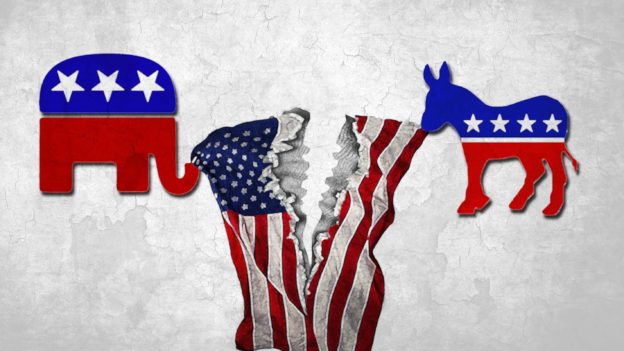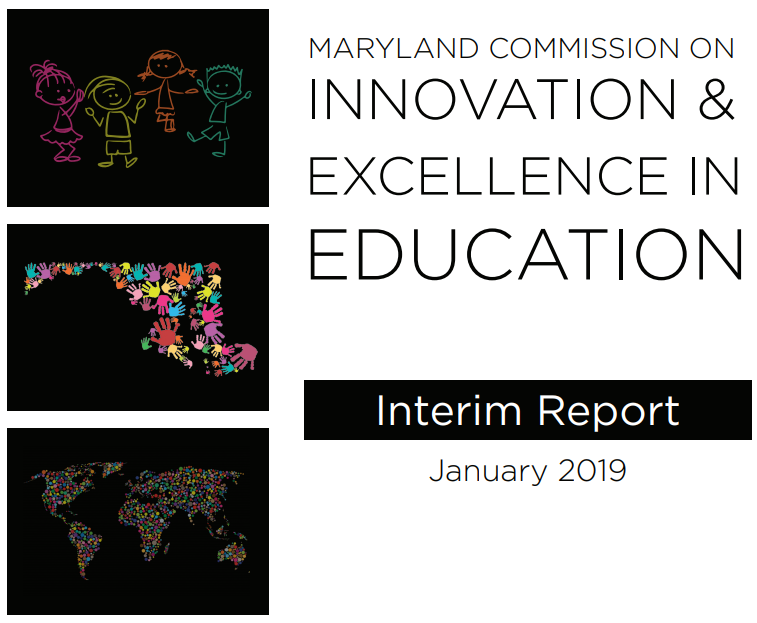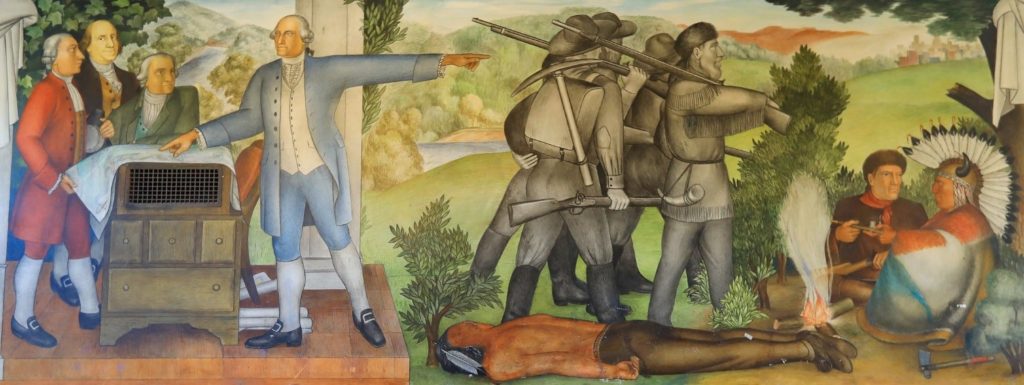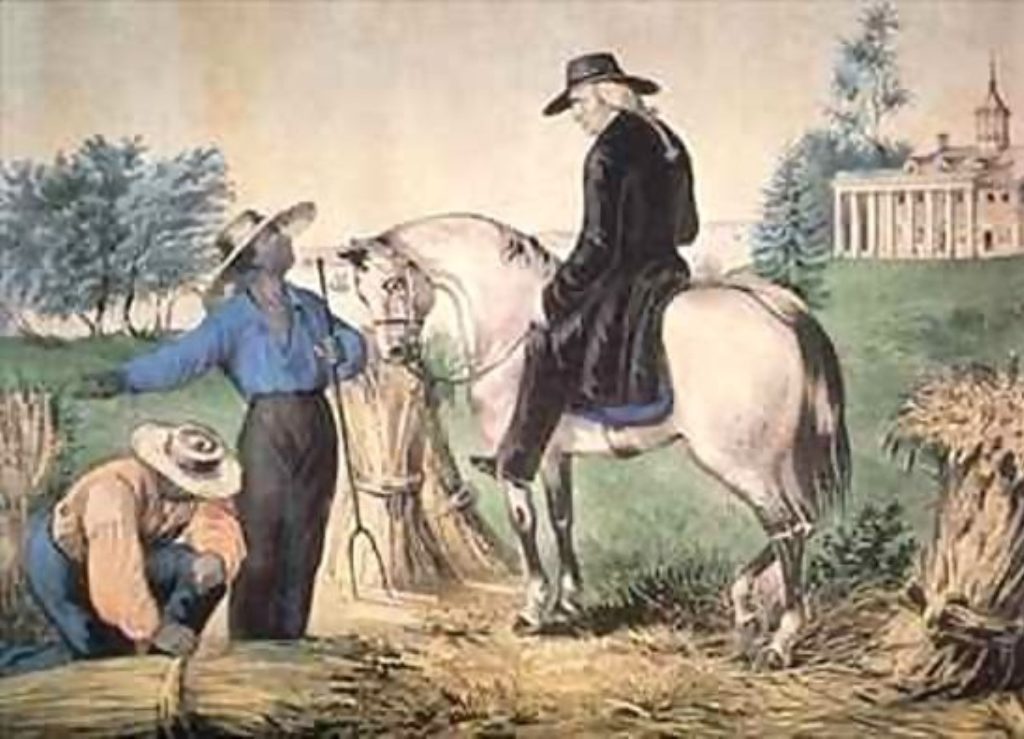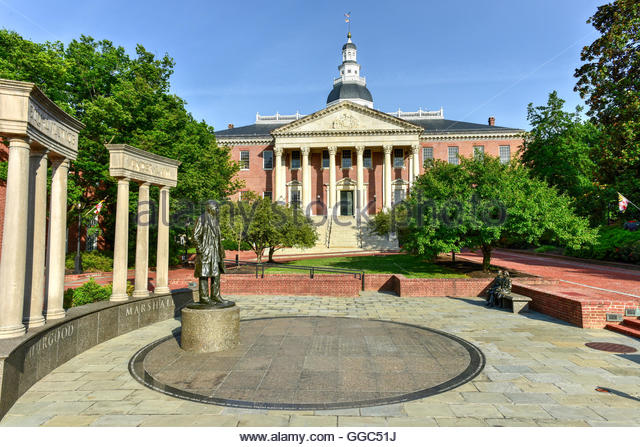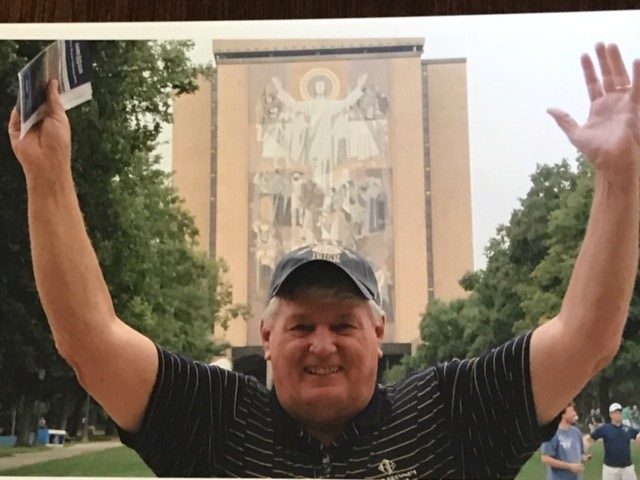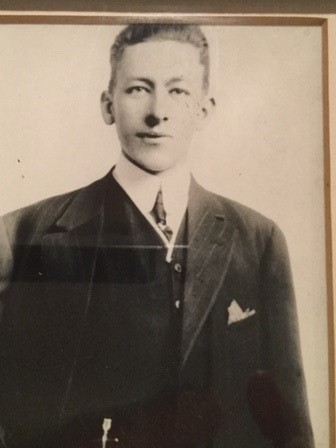A hundred years ago in the aftermath of the then unspeakable carnage of World War I, William Butler Yeats published a frightening poem known as “The Second Coming.” A portion reads:
- Turning and turning in the widening gyre
- The falcon cannot hear the falconer;
- Things fall apart; the centre cannot hold;…
- The best lack all conviction, while the worst
- Are full of passionate intensity.
Do not these lines reflect where we are today? “The best lack all conviction, while the worst are full of passionate intensity.” If I could change the world, I would ban Twitter. It seems like every politician, every athlete, every Hollywood celebrity has a Twitter account and inflicts 160 character diatribes which are faithfully reported by the political and celebrity press. It is hard to “love your neighbor” when your neighbor turns out to be a nasty, angry, bullying and ill-informed brute with a Twitter account. There should be informed and spirited discussion with respect given to our adversaries but now – in the memorable phrase of one of my classmates – we experience only “drive by shouting.”
The current state of American politics is, at best, disarming. The Democratic Party veers left while the Republican Party is in the thrall of Donald Trump. The national media prefers one over the other and, while there are repeated calls for bipartisanship, none appears. Maybe it is time for a new party.
I believe the “center” desires that new party. Both the Republicans and the Democrats have political insights that are valid but both are captured by their extremes. What will the new party look like and what might it espouse?
It seems to me that there are a number of issues that may command a majority. They include a commitment to environmental stewardship, a return to financial probity, policies to address income inequality and bolster the middle class, a foreign policy commitment to democratic ideals backed up by military readiness, a reasonable immigration policy and a reassertion of the rights of individuals against the demands of government.
These are my ideas to start a discussion. Others will disagree and have different ideas. The point is to listen to one another. If you plow through this overly long post, please share your thoughts.
Environmental Stewardship: One current political characterization is that Trump supporters are climate deniers and captives of the fossil fuel industry. How then to square the comments of one of the president’s staunchest supporters in the impeachment drama who explained that he did not come to Congress to argue with a thermometer? I think most people are convinced that global warming is real and needs to be addressed.
Of course, every weather event is now attributed to “global warming” which does not explain the various weather events of the last thousand years.
Both Germany and Japan have sworn off nuclear reactors while France remains fully committed (I understand Japan with its tortured history starting in 1945 but am completely flummoxed by Germany which has given in to its Green Party). It is hard to understand the objection to nuclear reactors as a solution to global warming because they are a solution. 40% of the electricity in the Baltimore area is delivered by a nuclear reactor at Calvert Cliffs Maryland. Hence, coal, gas and oil are not burned for that 40%. This is not to say that there are not issues with nuclear power, the principal one being the disposal of the fuel. However, scientists now believe that the nuclear fuel can be recycled and used in future “breeder” reactors. This surely seems a path worth pursuing.
Another solution would be trees and more trees to ingest the CO2. Here, I’m talking about trillions of trees to be planted around the world. In the United States, why not a Civilian Conservation Corps (CCC) such as created by FDR during the New Deal? One can envision any number of young people willing to give a year or two to this tree nurturing enterprise particularly if their student loans could be diminished.
And imagine if the Chinese government decided to flex its totalitarian muscle (again) and require the planting of trees. Say each person is required to plant and nurture 5 trees under pain of going to “re-education camps.” Result: 8 trillion trees.
For all of the criticism of fossil fuels, I think they are necessary if we are to see an increase in living standards throughout the world. What if the global warming CO2 emissions could be captured and rendered harmless? Craig Venter, who was one of the first to map the human genome, has isolated bacteria found in the sea which “eats” CO2. We need to think about and develop technical fixes so that fossil fuels can remain productive.
Financial Probity: The failure of the federal government to properly order its fiscal affairs is alarming. The national debt now exceeds $22 trillion which is 107% of the country’s Gross Domestic Product. As a share of the economy, the Gross National Debt is higher than it has been since 1947 in the aftermath of World War II. And the numbers are expected to get worse as the Congressional Budget Office currently estimates that over the next decade the country will add another $12.2 trillion in debt. That will make each person’s share well in excess of $100,000.
The Democrats were always being accused of “tax and spend.” The Republicans who issued that warning have adopted the mantra of “borrow and spend.” Not only is the federal budget completely out of whack but Social Security and Medicare are also woefully underfunded. We didn’t get here overnight so it seems reasonable that we should begin a long gradual path to restore fiscal sanity. Say we begin a 30 year program to bring things back to where they should be. Everybody needs to give a little and it won’t be painless but our grandchildren and their grandchildren will be the better for it.
In Maryland, there is a group called the Spending Affordability Committee, which meets prior to each legislative session, and determines the percentage amount that the state budget can be increased. The budget committees comply with this spending limit. Maryland ‒ like most states ‒ has a requirement that the state budget be “balanced.” Those two ideas, if adopted on the federal level, would restrain the spending impulses of Congress which now have no limit. Maryland has a coveted AAA bond rating and still has robust spending on needed programs.
A major redesign of the tax code will make the return to balanced budgets easier. There is no reason that Warren Buffett’s secretary should pay taxes at a greater rate than he does. The principal reason for this is the favorable treatment given to capital gain income as opposed to wage income. This, of course, contributes to the wealth inequality in our society since it is the wealthy that are most favored by this tax rate. If we tax income then all income should be taxed no matter how earned.
There are “sacred cows” in our tax code that need to be sacrificed. They include the home interest deduction and charitable deductions. If we were to take away these “deductions” (and countless others), we could increase revenue. Already, these deductions are less valuable than a few years ago since the recent tax bill significantly raised the “standard deduction” so the advantage of itemizing is greatly diminished as the “standard deduction” is a better deal. The Joint Committee on Taxation estimated that the number of “itemizers” will fall from 46.5 million to 18 million.
There are any number of possible “fixes” to both the revenue and spending side of the budget but, first, there must be a shared commitment to move to a balanced budget by 2050.
Individual v. Government: Almost immediately after the ratification of the United States Constitution, the Bill of Rights was added to the document. These “rights” are contained in 10 Amendments, which are a series of protections granted citizens from the intrusion of the new federal government. They include freedom of speech, of religion, of the press, the right to assembly and to bear arms, protection from unwarranted searches and seizures. Each person’s life, liberty and property is protected and criminally accused persons are granted procedural rights. So that nothing was left to chance, the 9th and the 10th amendments state that any rights not explicitly specified remain with the people or the states and are not the province of the federal government.
In 1973, the Supreme Court decided the case of Rowe v. Wade which held that the “right to privacy” allowed a woman the absolute right to have an abortion in the first three months of her pregnancy with restrictions allowed after three months. This issue has effectively divided the two major parties, with the Democratic Party being in favor of the “choice” position and the Republican Party in favor of the “right to life” position.
I agree with the opinion of the legal scholar John Hart Ely who wrote in the Yale Law Journal that Rowe “is not constitutional law and gives almost no sense of an obligation to try to be.” Today, such an opinion ‒ no matter how well founded ‒ would be an automatic disqualification to serve on the Supreme Court. The only safe testimony is to say either (1) that you agree with Rowe or (2) Rowe is settled law and you won’t overturn well established precedent.
How to settle this divide? The first thing we do is ignore the proponents on either side and attempt to discuss the issue without the waving placards. We should all start the discussion by first reading an article in The Atlantic (December 2019) by Caitlin Flanagan entitled “The Dishonesty of the Abortion Debate.” It is a failure of our current politics that one party takes the pro-abortion side and one takes the anti-abortion side. There are many “right to life” Democrats and an equal number of “choice” Republicans. We need to make this discussion nonpartisan and to approach it with the respect it deserves.
And what about other privacy issues? Should we not be concerned with the rights given to the federal government to monitor telephone conversations and emails as a result of the 9/11 tragedy? In the end, we need to remember that the authors of the Bill of Rights were concerned about the new federal government. They never foresaw the size and extent of the current federal government but the spirit which animated the Bill of Rights should be rediscovered by us as we deal with our federal government.
Immigration Policy: It was abundantly clear 30 years ago that immigration rules needed to change. The first indication was that ‒ in almost every business from Walmart to Home Depot ‒ signs were written in both English and Spanish. Indeed, in the late 1980s there was a spate of generally unsuccessful bills filed in state legislatures requiring English to be the recognized language. A very long time ago, Walmart and Home Depot knew better and so did most road construction contractors who hired supervisors who could speak Spanish.
The current nonsense about building a wall will, hopefully, end with the presidency of Donald Trump. Still, there has to be a coherent immigration policy because the people are coming and, moreover, we need most of them. The notion that only “educated” people should be admitted is shortsighted.
For those already here, we need to create a path to citizenship. The first step would be a path for a person brought here illegally as a child. This includes the industrious, friendly and helpful proprietor of my local dry cleaner. He arrived at 14, is now 26, married and a dad of two girls who, of course, are U.S. citizens. He would welcome that pathway.
For those not here, we need to secure our borders but we need to admit those who will be productive. Perhaps, a rule that no new admitee can qualify for governmental benefits for 5 years even though they will be required to pay all taxes. Such a rule will, at least, keep the ACLU busy.
We need to return to an attitude of welcoming immigrants. That is not to say that there are no rules, but it is to say that it is hard to be an immigrant; one has to be very motivated to leave home, family and friends. With such motivation, it should come as no surprise that most immigrants succeed here.
CAN THE CENTER HOLD?
The optimist in me says yes; the pessimist in me says no when considering the current state of political discussion. But if we give up “drive by shouting” and return to reasoned, but still animated discussion, then I think there is a chance.
